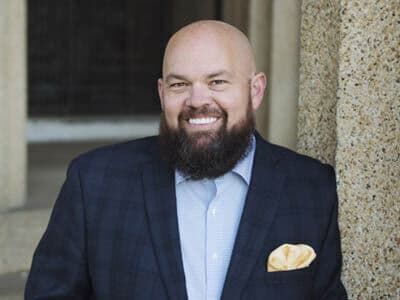Charlie Kirk, who helped build support for Trump among young people, dies after campus shooting
News > Religion News

Audio By Carbonatix
12:49 PM on Wednesday, September 10
By NICHOLAS RICCARDI and ALI SWENSON
Charlie Kirk, who rose from a teenage conservative campus activist to a top podcaster, culture warrior and ally of President Donald Trump, was shot and killed Wednesday during one of his trademark public appearances at a college in Utah. He was 31.
Kirk died doing what made him a potent political force — rallying the right on a college campus, this time Utah Valley University. The event was kicking off a planned series of Kirk college appearances from Colorado to Virginia dubbed “The American Comeback Tour.”
His shooting was one of an escalating number of attacks on political figures, from the assassination of a Democratic state lawmaker and her husband in Minnesota to last summer's shooting of Trump, that have roiled the nation.
Trump announced Kirk's death on his social media site, Truth Social.
Kirk personified the pugnacious, populist conservatism that has taken over the Republican Party in the age of Trump. An unabashed Christian conservative who often made provocative statements about gender, race and politics, Kirk launched his organization, Turning Point USA, in 2012, targeting younger people and venturing onto liberal-leaning college campuses where many GOP activists were nervous to tread.
A backer of Trump during the president’s initial 2016 run, Kirk took Turning Point from one of a constellation of well-funded conservative groups to the center of the right-of-center universe.
Turning Point's political wing helped run get-out-the-vote efforts for Trump's 2024 campaign, trying to energize disaffected conservatives who rarely vote. Trump won Arizona, Turning Point's home state, by five percentage points after narrowly losing it in 2020. The group is known for its events that often feature strobe lighting and pyrotechnics. It claims more than 250,000 student members.
Trump on Wednesday praised Kirk, who started as an unofficial adviser during Trump's 2016 campaign and more recently became a confidant. “He was a very, very good friend of mine and he was a tremendous person,” Trump told the New York Post.
Kirk showed off an apocalyptic style in his popular podcast, radio show and on the campaign trail. During an appearance with Trump in Georgia last fall, he said Democrats “stand for everything God hates.” Kirk called the Trump vs. Kamala Harris choice “a spiritual battle.”
“This is a Christian state. I’d like to see it stay that way,” Kirk told the 10,000 or so Georgians, who at one point joined Kirk in a deafening chant of “Christ is King! Christ is King!”
Kirk was a regular presence on college campuses. Last year, for the social media program “Surrounded,” he faced off against 20 liberal college students to defend his viewpoints, including that abortion is murder and should be illegal.
The author of several books, including one on the Second Amendment, Kirk was a staunch supporter of gun rights.
“I think it's worth to have a cost of, unfortunately, some gun deaths every single year so that we can have the Second Amendment to protect our other God-given rights,” Kirk said during a Turning Point event in Salt Lake City in 2023, adding that gun deaths can be reduced but will never go away.
Admirers stressed that, for all of Kirk's confrontational rhetoric, he relished debate and the free exchange of ideas. “His entire project was built on reaching across the divide and using speech, not violence, to address and resolve the issues!” William Wolfe, executive director of the Center for Baptist Leadership, posted on X.
Kirk's style was influential for a new generation of conservatives. Republican Rep. Anna Paulina Luna of Florida spoke on the Capitol steps after the shooting Wednesday, reflecting on Kirk's influence on her political journey.
“I was supposed to go to medical school. Charlie Kirk called me the day before I was supposed to leave, and recruited me to be the national Hispanic outreach director for the organization,” Luna said. “I was with him at many of them, debating those kids, and that conversation needs to happen. You can’t squelch that.”
Kirk was married to podcaster Erika Frantzve. They have two young children.
Turning Point was founded in suburban Chicago in 2012 by a then 18-year-old Kirk and William Montgomery, a tea party activist, to proselytize on college campuses for low taxes and limited government. It was not an immediate success.
But Kirk’s zeal for confronting liberals in academia eventually won over an influential set of conservative financiers.
Despite early misgivings, Turning Point enthusiastically backed Trump after he clinched the GOP nomination in 2016. Kirk served as a personal aide to Donald Trump Jr. during the general election campaign.
Soon, Kirk was a regular presence on cable TV, where he leaned into the culture wars and heaped praise on the then-president. Trump and his son were equally effusive and often spoke at Turning Point conferences.
Kirk announced he was organizing buses to travel to Washington to back Trump on Jan. 6, 2021, and later invoked the Fifth Amendment rather than answering questions from the Jan. 6 subcommittee.
Also in 2021, as he stepped up criticism of the Black Lives Matter movement on college campuses, Kirk called George Floyd, the Black man whose 2020 murder at the hands of Minneapolis police sparked protests that roiled Trump's last full year in office, a “scumbag.”
“Just don’t totally mess up this state," Kirk said at the event in Mankato, Minnesota. "It was built by wonderful Scandinavians, and it seems as if it’s being destroyed now, rather intentionally.”
As money poured in, Kirk bought a $4.75 million Spanish-style estate on a gated Arizona country club. Turning Point steered millions of dollars to contractors owned by Kirk and his associates, and some Republicans were skeptical when it announced it would spearhead an attempt to turn out infrequent voters during Trump’s 2024 campaign.
But as younger voters shifted right in 2024 and Trump ran up a five-point margin of victory in Arizona, Kirk and his allies claimed vindication of his view of a sharp-elbowed, culture-war-oriented conservatism.
Kirk’s evangelical Christian beliefs were intertwined with his political perspective, and he argued that there was no true separation of church and state.
He also referenced the Seven Mountain Mandate that specifies seven areas where Christians are to lead — politics, religion, media, business, family, education and the arts, and entertainment.
In the foreword to a book written by a pastor and Turning Point staffer to be published next week, Kirk wrote: "In today’s America, the Christian faithful are faced with a terrifying and broad array of dangers and threats. We are menaced not by new false gods, but by the return of demons from long ago.”
Kirk argued for a new conservatism that advocated for freedom of speech, challenging Big Tech and the media, and centering working-class Americans beyond the nation’s capital.
“We have to ask ourselves a question as a conservative movement: Are we going to revert back to the party of the status quo ruling class?” he said in his speech opening the Conservative Political Action Conference in 2020.
“Or are we going to learn from what I call the MAGA doctrine? The MAGA doctrine, which is a doctrine of American renewal, revival, one that America is the greatest country in the history of the world.”
___
Thomas Beaumont in Des Moines, Iowa, Joey Cappelletti, Brian Slodysko and Matt Brown in Washington and Hillel Italie in New York contributed to this report.












